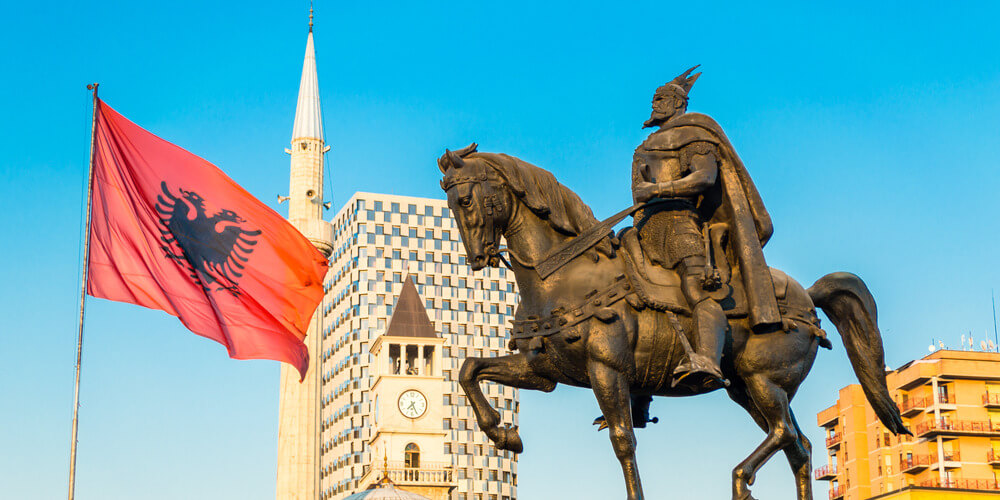United Bank of Albania plans a digital turnaround amid losses
The country’s Islamic bank has struggled in recent years, despite support from the Islamic Development Bank.
When Bosnian Amel Kovačević took over as CEO of United Bank of Albania (UBA) in 2020, the institution recorded a loss of over 356.6 million Albanian Lek ($3.3 million), falling from a 30.7 million Lek ($0.3 million) profit in 2018 and 8.7 million Lek ($0.08 million) in 2019.
Speaking to Salaam Gateway, Kovačević confirmed that the 1994 founded bank has started a comprehensive turnaround exercise to transform UAB into a progressive and modern Islamic bank.
“In 2020, our strategy was to cleanse the bank’s portfolio, consequently resulting in a negative financial performance,” Kovačević said.
Part of the strategic plan is focused on retail banking and expanding its current network of four branches. In addition, the development of a digital ecosystem is expected to provide efficiencies and attract the younger generation as clientele.
The results for the three quarters ending 30 September 2021 showed a 22.1 million Lek ($0.21 million) loss. Kovačević faces these challenges along with a notable shift in shareholders.
UBA’s CEO hopes that the new structure with Eurosig as the primary stakeholder will synergise customer acquisition. The local insurance company became the bank’s majority shareholder in 2021 when the Islamic Development Bank (IsDB) sold 30% of its shares. Currently, Eurosig holds 51.02% and IsDB 42.2%.
Kovačević, who served as Bosnia and Herzegovina's ambassador to China and Mongolia from 2010 to 2013, and as Sarajevo’s regional finance minister for 16 months, brings diplomatic skills, experience and knowledge to the table to manage the bank’s transformation.
Before his UBA appointment, Kovačević was the head of retail banking at Sharia-compliant Bosna Bank International (BBI), which IsDB also co-founded.
Considering that UBA is the smallest of the 12 banks operating in Albania, Kovačević tries to position the bank as a niche player, banking on the movement around the UN’s Sustainable Development Goals (SDGs).
“It’s very fashionable now, globally accepted and inclined to Islamic finance, too,” Kovačević said.
The finance expert believes that Islamic finance will attract foreign investments into Albania, accelerate economic participation, and help redistribute income in society.
But he also pointed out that Islamic banking in Albania, an OIC member state with a population of 2.8 million, is not going to answer all problems or fix socio-economic issues such as poverty. Around 60% of the population is Muslim.
“UBA tries to provide a fresh approach to Albania’s development,” Kovačević said.
“Albania is going to be a prosperous country in years to come because of its competitive advantages,” Kovačević said, referring to its location in the Mediterranean, which provides an ideal climate for agriculture and tourism.
However, the country still shows weak structural conditions for sustained development.
Although growth averaged 3.3% in 2015-2019, Albania’s stagnant productivity, a landscape dominated by small and medium-sized enterprises that employ low-skilled and low-wage labour, limited access to finance, burdensome logistics, and poor market integration discourages private investment, the World Bank wrote in its Europe and Central Asia economic update 2021.
What Albania lacks in private investment the IsDB compensates for with infrastructure investment. In December 2021, the development bank announced the latest project - $56.8 million to construct a section of the Tirana-Korca Corridor, improving connectivity between the capital with East Albania’s largest city.
Kovačević was surprised that many of the IsDB projects were not going through UBA while realising the limitation to absorb transactions exceeding the bank’s capacity.
“We’re working on having much more synergy between IsDB and UBA and on channelling as much of IsDB’s activities as possible towards UBA,” Kovačević said. “They understand the need for us to be part of those projects as well,” he said about his discussions with the ministry in charge.
IsDB so far has approved 39 investment projects in Albania, in total worth $597.6 million.
Referring to Albania’s economic development over the past 30 years, Kovačević is optimistic about successfully transforming UBA.
“Progress happens,” Kovačević said, “and Albania is a country with great potential.”
© SalaamGateway.com 2021 All Rights Reserved
